Here are my highlights of the Q&A I went to last week with Dennis Kelly and led by Chris Campbell – literary manager of the Royal Court. I was typing them just as Dennis Kelly won a Tony for his work on Matilda. He is an incredibly successful writer and has had huge success in writing for both theatre and TV as well as being a very approachable, honest and charming interviewee. Dennis Kelly’s wiki
He gave lots of great advice such as
“You can write what you like , we all have that platform especially at the moment.
Just write the next play and do it.
If you are not taking your work seriously, no one else will either
Ask yourself if you are are enjoying writing a particular piece. If not then why are you writing it?
Don’t be tortured, enjoy the process! “
This Q&A was held at the Actors Centre in London, I have been a member of them for years but they really are stepping up their game and presenting us with so many great actors, directors and writers all there to teach us and happy to be quizzed by us so well done .Actors Centre!
Some of the highlights follow:
Dennis Kelly left school at 16 for a bad job at Sainsburys & no culture. But found the local new Barnet – youth theatre drama centre and he used to live for those Thursday evenings. At the Youth Theatre he found Pinter ‘Trouble in the works’
In his mid 20s decided to write a play & put it on with friend Sharon that he could be in – ‘Brendan’s visit’
It was not terrible – a sitcom with swearing.
After this he went to university to avoid another bad job – studied drama & theatre arts at Goldsmiths & whilst he has never used any skills he learnt there he discovered writers playwrights, different ways of putting on theatre and it opened his mind
Then he wrote a short piece that never went on stage called White Pig and then Debris which was then put on at Theatre 503
He had presence of mind to know it didn’t quite work so made lots of changes before it went on.
He really experimented with an open mind about theatre , it’s not TV so it doesn’t need to look like its on TV. No rules!
He knew something was wrong with Debris as it was a non realistic play and even tried doing it as realism.
He had a lot of rejections with Debris initially.
“Writing programmes can be dangerous for young writers as theatre shouldn’t be telling young writers how to write but the young writers should be telling us how to make theatre
The arrogance of youth is a very good thing. Yes you have to listen but you need the confidence.”
Debris got good feedback but then he realised that this was not ‘his voice’ and important to not write lots of pale imitations of the plays you have written in the past
Luckily he made only a little ripple with Debris,
“Making big waves can be very difficult when you starting out as a writer. If you then want to write in a different style you will be criticised for it”
He wrote Osama the Hero, police there at press night @ Hampstead theatre – they were nervous he didn’t understand why.
Dennis Kelly said it is very difficult to write violence into a play or TV script. (He has recently written Utopia for TV with a torture scene in)
If the violence is right for the story that he knows he can’t be a coward & not put it in. But then he sits in the audience abs sees the horror he has created – & feels like a naughty school boy who knows he has done something wrong but it is terrible to be there
However it is an act of cowardice to not put in a story line when it is right for the piece.
When he wrote Pulling (an award winning TV series) about 3 women he did question about writing such a piece about 3 women but again cowardice if you don’t.
He has had a hugely successful TV career as he recognises some pieces can only exist in one form. Lots of play writing could be on TV & that is his least favourite kind of writing.
He wants to feel that its theatre – ‘Friends on stage’ is terrible
TV & theatre are very different worlds
If you want to write in 3 mediums – it is 3 different jobs.
Want to give everything to being a playwright
He started late so he voracious and very focused
So he takes lots of projects on such as Matilda, Utopia & film projects – you can never tell if things will happen & then suddenly it’s a hand grenade in your year if a project does happen
With Matilda being his first musical, he also tried to write the songs but he could see they not quite working & when Tim Minchin was brought in he was brilliant & Dennis thought ”oh yes that’s how to do it!’
He feels musicals can be incredible with their access to emotion , it’s the form though that can be misused & abused. You have got to work harder than that and really work the form & what you are trying to say not just a bit of text then a song.
The joy of working with Matilda was the RSC just let them get on with it, there was no ‘you have to do this in Act 2’
It was a long process, lots of crying & laughter.
write here write now with matilda
A question was asked that an audience member felt there was no need for naturalism anymore in the theatre. Dennis Kelly does not like any rules, there is no reason to not go in all directions.
Chris Campbell said that he thinks there is still room for naturalistic plays as there is so little political discourse outside the theatre
Dennis Kelly has Irish parents and is not interested in ‘identity’ in the way some playwrights so, he sees himself as European & thinks the EU a great concept.
He did not want to get stuck in the idea of being a working class playwright, this is iconic but he did not want to get stuck in one place of council estate plays, ‘I eat houmous, I have some in my bag now!’ .
I asked Dennis about his inner knowledge when he was working on a new piece of work; how he knew if it was working or not, where did he need to do more work etc.
He said he did not know but other people will read it & say X and then he knows that they are right.
“At some point you have to have the work read & then listen to what the world is telling you. The only thing that matters is the truth of the play. “
He likes to leave it for a week and then come back to it, that always helps.
He heard Doris Lessing speak at Catford Town Hall & he has taken her advice not to just write one book & hawk it around for ten years.
“You want to be a playwright, not having just written one play”
Have lots of projects and see your own work in a different way than other playwrights. they are not all amazing and you are terrible or vica versa.
You can love the characters but don’t fall in love with the play because you have to be able to cut and edit.
He was 33 and subsidising his writing by being a waiter. It is easy to sacrifice everything when you have not got kids and a family or responsibilities. The choice is yours because it (the writing) may not work
He always had a plan B – a gumbo stall! It was good to have as then you write from a better place, less anxious.
If theatre & your writing matters too much and you sacrifice yourself and your life on the altar of theatre it is too much. It helps to write without the pressure of having to be successful.
He likes working with actors and directors but he comes in at the beginning & the end, but the relationship between the director and the actors has to be built.
Tags: actor, Actors Centre, altar of theatre, Barnet, Brendan, Catford Town Hall, Chris Campbell, creative techniques, Dennis Kelly, director, Doris Lessing, dream and take action, EU, Goldsmiths, Hampstead theatre, Interview, London, Matilda, Osama, Pinter, Play, Playwright, positive thinking, Royal Court, Sainsburys, Sharon, showing your work, theatre, Theatre director, Tim Minchin, writer, Writers, Youth Theatre













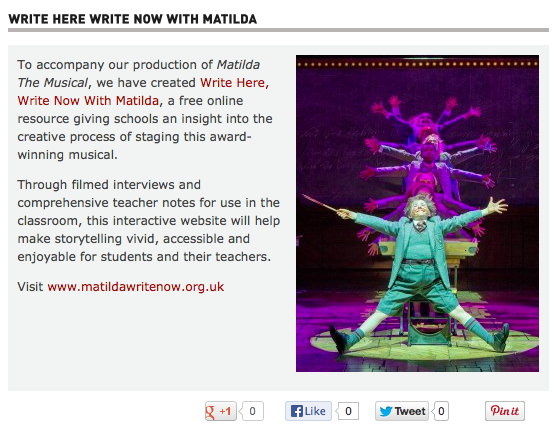



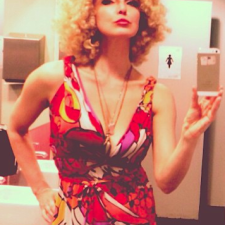

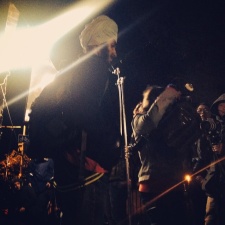


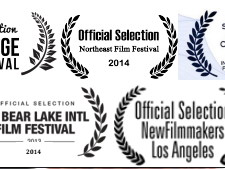



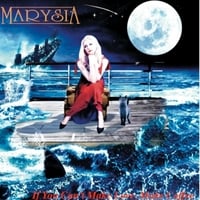










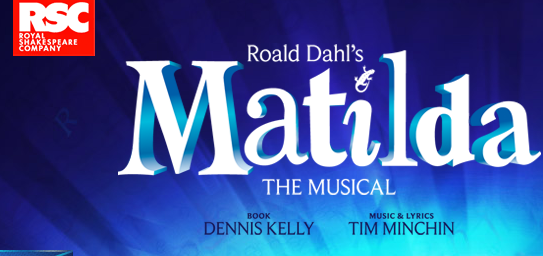
Leave a Reply